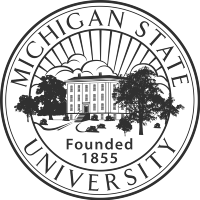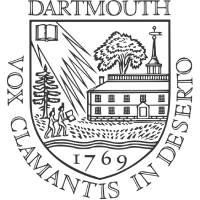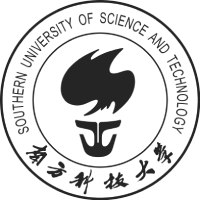Powering The Future Of Blockchain Through
Collaborative Research
Vechain aims to support academic research on blockchain-related advancements. Since its launch, veResearch has been a driving major force behind blockchain-related progress, collaborating with leading global research bodies and co-developing new technologies with a specific focus on sustainability.
Typically, we join forces with enterprises and businesses who invest in research and development of blockchain technologies. Together, we drive quick blockchain and web3 adoption in the business world by closing the gap between business needs and technological offering, progressively testing and learning through real world use-cases.
About veResearch
Mission
To establish a global grant program that pioneers collaborative research in blockchain innovations with leading academic institutions
Powered by vechain
In collaboration with vechain, we’ve initiated a substantial funding pool, welcoming parties eager to join forces in the quest for expanding the vechain ecosystem.
Join us
We call upon professors, lead researchers, and academicians from diverse fields to dive into the realm of blockchain. If you have an inclination for blockchain or its integration, veResearch awaits your collaboration.
Our Global Academic Partners
Vechain is closely working with various research institutes and universities around the globe. We are proudly collaborating with 6 of the world’s leading universities in groundbreaking research projects set to revolutionize the global economy.






Our research areas
Blockchain Consensus
At its core, a blockchain’s consensus mechanism ensures that all participants in the network agree on the validity of transactions. This agreement eliminates the need for intermediaries, ensuring security and trust within decentralized systems. Popular mechanisms like Proof-of-Work and Proof-of-Stake dictate how blocks are added to the chain. By achieving consensus, blockchains maintain their integrity and resist malicious attempts to alter transaction history.
Tokenomics
Tokenomics, a portmanteau of “token” and “economics,” refers to the design and economic model behind a cryptocurrency token. This encompasses how tokens are created, distributed, used, and how they can incentivize behaviors in their respective ecosystems. Factors like total supply, release schedules, and utility are crucial components. A well-designed tokenomic structure ensures sustainability and value appreciation for a project’s token.
Blockchain Applications in Sustainability
Blockchain technology holds transformative potential for sustainability. Its decentralized and transparent nature can trace supply chains, ensuring ethical and sustainable sourcing. By creating immutable records, blockchains can validate carbon credits, promote renewable energy sources, and combat fraud in eco-certifications. Through token incentives, blockchain can also stimulate sustainable behaviors, making it a cornerstone for future green initiatives.
Confidential Computation
Confidential computation ensures that data remains encrypted while being processed, offering a solution to one of blockchain’s most significant challenges: balancing transparency with privacy. This means computations on private data can be executed without revealing the data itself, opening avenues for use cases that require confidentiality, from secure voting systems to private smart contracts.
Data Privacy
In an age of digital surveillance and data breaches, data privacy has become paramount. Blockchain, with its encryption and decentralized nature, can safeguard user data from unauthorized access and central failures. Rather than storing data in a centralized location, blockchain disperses it across nodes, ensuring data integrity and security. Coupled with features like zero-knowledge proofs, blockchain offers robust data privacy solutions.
Web3
Web3 represents the next evolution of the internet, a shift from centralized platforms to decentralized ecosystems powered by blockchain. Unlike traditional web structures where intermediaries control platforms and data, Web3 promotes user sovereignty over data, assets, and interactions. This paradigm integrates decentralized apps (dApps) and smart contracts, paving the way for a more open, transparent, and user-centric digital age.
Showcase: blockchain applications in sustainability
In 2010, Prof. Sir Konstantin Novoselov won the Nobel Prize in Physics for his work on graphene. Now, vechain is collaborating with his team at the National University of Singapore to research how blockchain can track green energy in markets using advanced materials at the atomic scale.
Publications
Distributed Data Vending on Blockchain
Zhou, J., F. Tang, H. Zhu, N. Nan & Z. Zhou (2018) Distributed Data Vending on Blockchain. Proc. IEEE Int’l Conf. Internet of Things (iThings) and IEEE Green Comput. Commun. (GreenCom) and IEEE Cyber, Physical, Social Comput. (CPSCom) and IEEE Smart Data (SmartData).
DOI: 10.1109/Cybermatics_2018.2018.00201
C2P2: A Collective Cryptocurrency Up/Down Price Prediction Engine
Bai, C, T. White, L, Xiao, V.S. Subrahmanian & Z. Zhou (2019) C2P2: A Collective Cryptocurrency Up/Down Price Prediction Engine. Proc. IEEE Int’l Conf. Blockchain.
DOI: 10.1109/Blockchain.2019.00065
An Evaluation Framework for Blockchain Consensus Algorithms
Ren, Z., H. Xiang, Z. Zhou, N. Wang & H. Jin (2021)AlphaBlock: An Evaluation Framework for Blockchain Consensus Algorithms, Proc. Int’l Workshop Security in Blockchain and Cloud Computing.
A Practical Blockchain Consensus Algorithm for Real-World Networks
Ren, Z. & Z. Zhou (2020) SURFACE: A Practical Blockchain Consensus Algorithm for Real-World Networks.
https://arxiv.org/abs/2002.07565
BYD: Blockchain-Enabled Green Ecosystem
Han, J., H. Pun, W. Wang & Z. Zhou (2020) BYD: Blockchain-Enabled Green Ecosystem. Case, No. 9B20M144, Ivey Publishing, https://www.iveycases.com/ProductView.aspx?id=110765.
Join The veResearch Program
We welcome innovative minds to work alongside us. If you’re from an academic institution or a research lab keen on exploring the realms of blockchain, apply to our program.
You can reach out to us and apply for the program using veresearch@vechain.org


